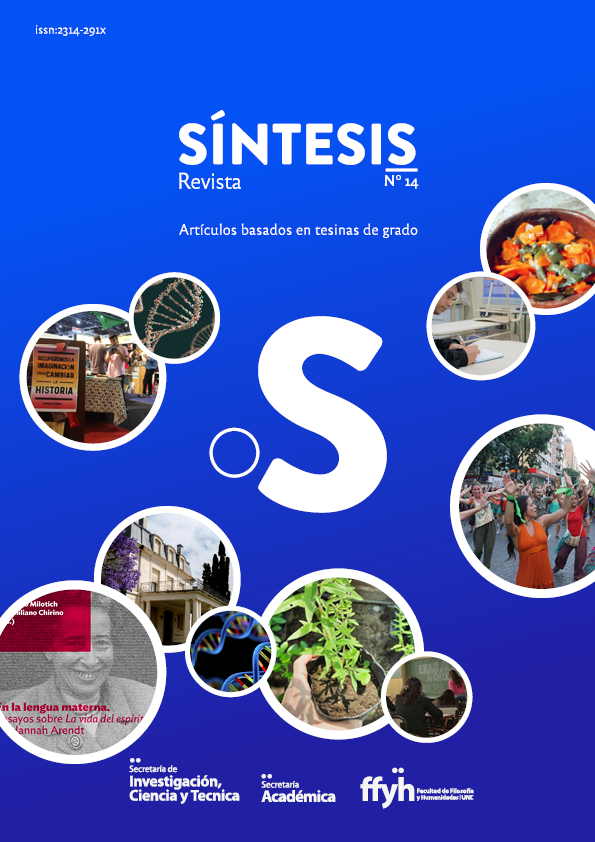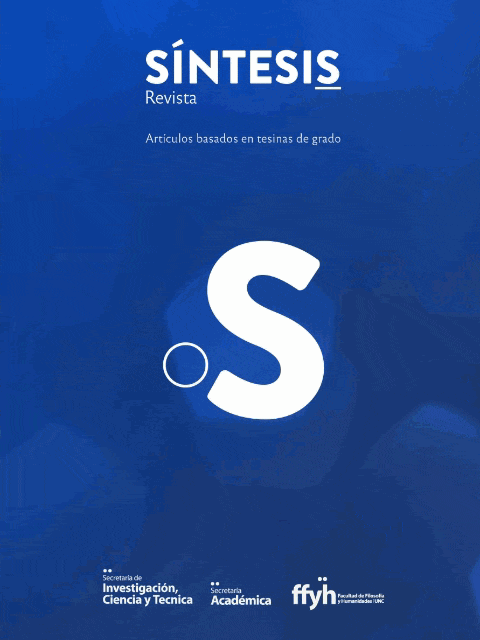“The plants of our place”
Ethnography on a university research-extension project in an ISFD of Villa del Rosario
Keywords:
native plants, cultural diversity, heritage, ISFD, Villa del Rosario (Cordoba)Abstract
This research ethnographed the educational material created with teachers and students of two careers (Initial and Primary Levels) from the Teacher Training Institute Adoratrices of Villa del Rosario, who participated in the university extension project “Cultural diversity, native plants and heritage: multivocal educational proposals for the initial and primary level”, on native plants, indigenous peoples, cultural diversity and heritage of Cordoba; and how they incorporate those concepts into their educational practices. While on the field, we noticed how the contents to be addressed on native plants, heritage and cultural diversity were determined by negotiating with the guidelines of "the curriculum" prepared by the provincial government; which orders them according to the crystallized nature/culture dichotomy.
This extensionist experience turned into research; records, analyzes and problematizes theoretically and methodologically, and, at the same time, focus on the potential of anthropological interventions (Fredric, 2016) produced on demand (Segato, 2013).
Downloads
References
Bourdieu, P. (2003). Ciencia de la ciencia y reflexividad. El oficio de científico. Barcelona: Anagrama.
Campos, C. M. (2012). Los niños y la biodiversidad. ¿Qué especies conocen y cuáles son las fuentes de conocimiento sobre la biodiversidad que utilizan los estudiantes? Un aporte para definir estrategias educativas. En Boletín Biológica (4), 4-9.
Conforti, M. E. y Mariano, C. (2013). Comunicar y gestionar el patrimonio arqueológico. En Arqueología, 19(82), 347-362. Instituto de Arqueología FFyL, UBA.
Frederic, S. (2016). Intervenciones del conocimiento antropológico en terreno militar. QueHaceres, (3), 58-69.
Guber, R. (2010). La etnografía. Campo, método y reflexividad.
Guber, R. (2016). La observación participante; La entrevista etnográfica, o el arte de la “no directividad”; El registro: medios técnicos e información sobre el proceso de campo. En La Etnografía. Método, campo y reflexividad. Siglo XXI. Editores. Buenos Aires.
Martínez, G. J. 2010. Las plantas en la medicina tradicional de las Sierras de Córdoba. Ediciones del Copista.
Mato, D. (2008). No hay saber universal, la colaboración intercultural es imprescindible. En: Alteridades, 18(35), 101-116.
Mato, D. (2018). Repensar y transformar las universidades desde su articulación y compromiso con las sociedades de las que forma parte. En Revista +E 8(9), 38-52.
Muñoz Paganoni et al. (2021). Las plantas de nuestro lugar: propuestas educativas multivocales para el nivel inicial y primario en Diversidad cultural, plantas nativas y patrimonio [blog] Disponible en https://blogs.ffyh.unc.edu.ar/diversidad-plantasnativas-patrimonio/publicacion-digital-las-plantas-de-nuestro-lugar-propuestas-educativas-multivocales-para-el-nivel-inicial-y-primario/
Pérez, C; Ardévol, E; Bertrán, M; Callén, B. (2003) “Etnografía virtualizada: la observación participante y la entrevista semiestructurada en línea”. Athenea Digital: Revista de Pensamiento e Investigación Social, (3), 72-92.
Santos, B. (2018). Justicia entre saberes: epistemologías del Sur contra el epistemicidio. Ediciones Morata.
Segato, R. L. (2013). La crítica de la colonialidad en ocho ensayos: y una antropología por demanda. Prometeo libros.
Downloads
Published
How to Cite
License
Copyright (c) 2024 Síntesis

This work is licensed under a Creative Commons Attribution-NonCommercial-NoDerivatives 4.0 International License.




